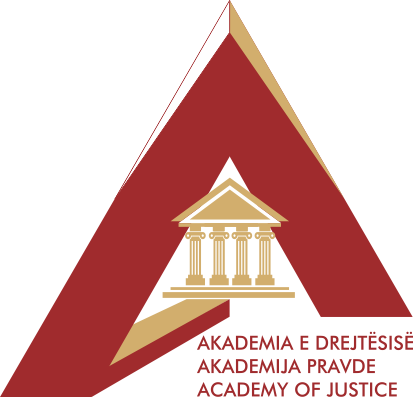
 ACADEMYOF JUSTICE
ACADEMYOF JUSTICE
The Academy of Justice within the Initial Training Program, for newly appointed judges, during January developed several activities toward completion of the training program, including theoretical training, practical training and the visits to non-judicial institutions.
During this period were conducted 16 training sessions from the submodule: “Search and confiscation” (1) “Administration of criminal procedure (2) “Evidence in criminal procedure” (6), “Statutory limitation” (3), “Initial hearing, second hearing and the main trial” (3), Evidence in criminal procedure” (6), and “Special procedure according to CPCK (1).
Within these sub-modules were treated confiscation according to the expanded competencies, source of evidence and proving means, obtaining evidence before and after the formal initiation of the investigation and their admissibility, the manner of obtaining evidence from witnesses and experts Article 123 of the CPCK, inadmissible evidence, evidence under Chapter XVI of the Criminal Procedural Code, as well as general rules for the assessment of evidence. Also were treated complaints, time frames, and obtaining and communication of decisions, submission of documents, execution of decisions and other provisions, initial hearing, plea bargaining agreement, guilty plea during the initial hearing and punishment, objection of the evidence, request for filing the indictment and the second hearing. Also, a special attention was paid to the procedure against persons who committed criminal offenses under the influence of alcohol or drugs, and criminal proceedings involving perpetrators with mental disorders and their detention.
In the framework of the Criminal Code module, the statutory limitation has been treated - its legal nature, non-enforcement of statutory limitations for offenses against international law and serious murder and statutory limitation of execution of the sentence.
The methodology applied during the implementation of these training sessions was combined, including theoretical lectures and interactive discussions where newly appointed judges raised issues of interest and dilemmas which they have noticed during the practical training phase in the respective courts. Through tasks and practical exercises, they engaged in the preparation and presentation of cases for different hypothetical situations.
Whereas, within the practical training, newly appointed judges have continued their practice in relevant courts according to the program schedule, under the supervision of their mentors. Also, newly appointed judges during this period have conducted training to the Center for Social Work.
30-01-2018